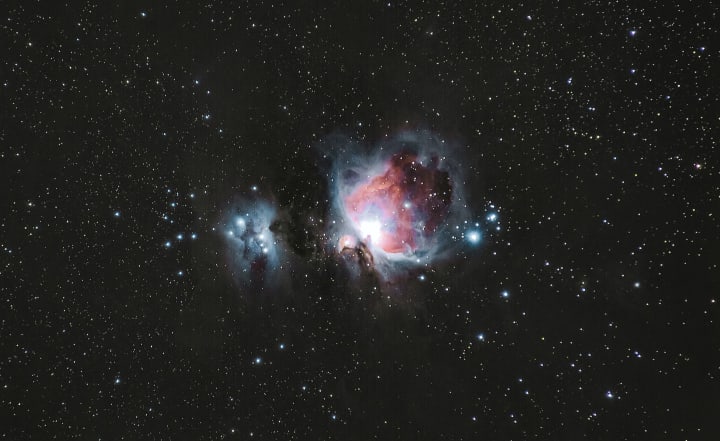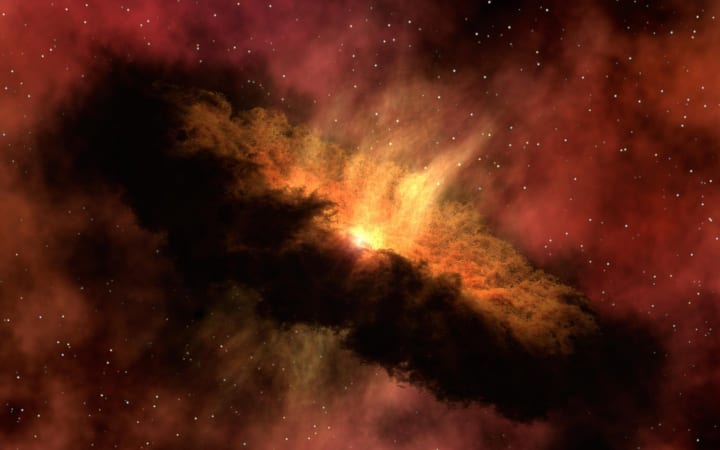Unraveling the Mysteries of the Universe
Unraveling the Enigma: Exploring the Mysteries of the Universe

The universe is an enigma that has fascinated humanity for centuries. It's a vast and complex system of galaxies, stars, planets, and other celestial bodies that continues to perplex and mystify scientists and researchers. Despite the incredible advancements made in astrophysics, cosmology, and other related fields, many questions about the universe remain unanswered. In this article, we'll explore some of the mysteries that continue to baffle scientists.
One of the most significant mysteries of the universe is its origin. How did the universe begin, and what caused it to exist? The most widely accepted theory is the Big Bang theory, which states that the universe began as a singularity, an infinitely small and dense point of energy. This point expanded rapidly, creating space and time and forming the universe we know today. However, scientists still don't know what caused the singularity to exist or what triggered the Big Bang.
Another mystery is the nature of dark matter and dark energy. According to observations of the universe's movement, there is far more mass and energy than what can be accounted for by visible matter. Scientists have dubbed this missing mass and energy "dark matter" and "dark energy." While they can observe the effects of dark matter and dark energy on the universe, they still don't know what these substances are made of or how they work.
The universe is also home to many cosmic phenomena that we don't fully understand. For example, black holes are objects so massive and dense that they warp the fabric of space and time, causing anything that gets too close to be sucked in. Scientists are still trying to understand how black holes form and what happens to the matter that falls into them.

Similarly, the nature of the universe's expansion remains a mystery. It was previously believed that the universe's expansion would eventually slow down and come to a stop. However, in the late 1990s, observations of distant supernovae showed that the expansion of the universe is actually accelerating. Scientists have attributed this acceleration to dark energy, but they still don't understand how dark energy works or what causes it.
The question of whether there is life beyond Earth is another intriguing mystery of the universe. While scientists have not yet found conclusive evidence of extraterrestrial life, the vast size and complexity of the universe suggest that it's possible. Many scientists believe that life may exist in some form on other planets, but the search for extraterrestrial life is ongoing.
The universe's mysteries are not only intriguing but also have practical implications. For example, understanding the nature of dark matter and dark energy could help scientists better understand the universe's evolution and predict its future. Similarly, gaining a better understanding of black holes and other cosmic phenomena could help us develop new technologies, such as more efficient space travel.
In conclusion, the mysteries of the universe are vast and complex, and scientists are still working to unravel them. From the universe's origin and expansion to the nature of dark matter and the possibility of extraterrestrial life, the mysteries of the universe continue to fascinate and intrigue us. As scientists continue to make new discoveries and advancements in the field of astrophysics, we can expect to gain a deeper understanding of our universe and the mysteries it holds.

One area of interest for scientists studying the mysteries of the universe is the concept of parallel universes. According to some theories, there could be an infinite number of parallel universes, each with its own set of physical laws and dimensions. While there is no direct evidence for the existence of parallel universes, some scientists argue that they could help explain some of the universe's mysteries, such as the nature of dark matter and dark energy.
Another area of interest is the search for gravitational waves. Gravitational waves are ripples in the fabric of spacetime, and their discovery in 2015 was a significant milestone in physics. Scientists believe that studying gravitational waves could help us better understand black holes, the early universe, and the nature of gravity itself.
The concept of time is also a mystery of the universe. While time is something we all experience, scientists still don't fully understand its nature. Theories such as the block universe theory suggest that time is an illusion and that all events past, present, and future exist simultaneously. Other theories propose that time is something that emerges from the interactions between particles and fields, but the nature of time remains a subject of intense debate.
Finally, the mystery of consciousness is a fascinating area of study related to the universe. While consciousness is a phenomenon that we all experience, scientists still don't fully understand how it arises from the brain's activity. Some theories suggest that consciousness is an emergent property of complex information processing, while others propose that it's a fundamental aspect of the universe itself.
In conclusion, the mysteries of the universe are vast and complex, and scientists are continually working to unravel them. From the nature of dark matter and dark energy to the search for extraterrestrial life, the universe holds many mysteries that continue to captivate our imaginations. As our knowledge and technology continue to advance, we can expect to make new discoveries and gain a deeper understanding of the universe and our place within it.
About the Creator
Enjoyed the story? Support the Creator.
Subscribe for free to receive all their stories in your feed. You could also pledge your support or give them a one-off tip, letting them know you appreciate their work.





Comments
There are no comments for this story
Be the first to respond and start the conversation.